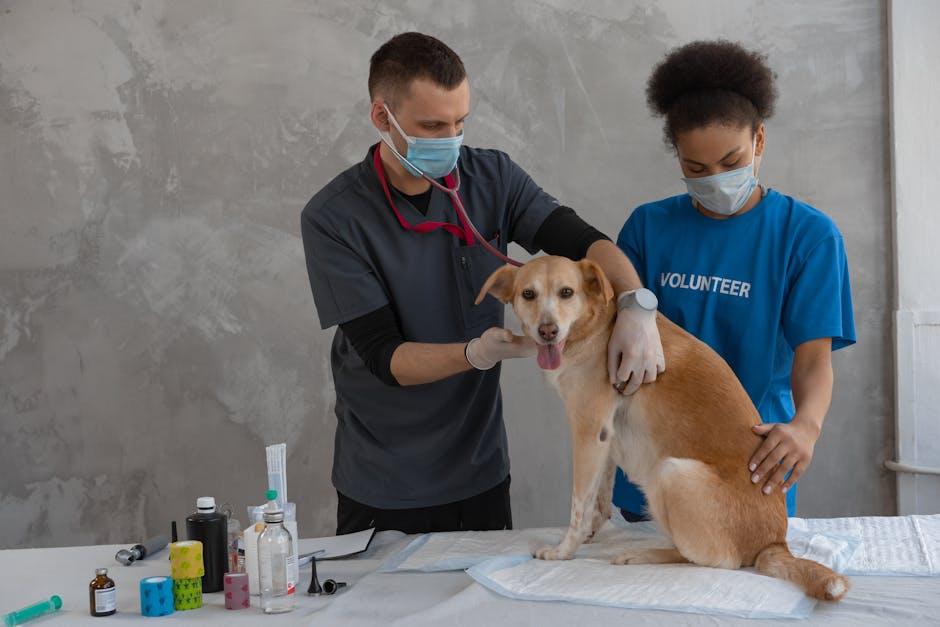Welcoming a new puppy into your home is an exciting and joyful experience, filled with wagging tails, playful barks, and boundless energy. As a new pet owner, you are embarking on a rewarding journey of companionship and love. However, alongside the cuddles and fun, there comes the important responsibility of ensuring your puppy’s health and well-being. Providing the best care during these formative months lays the foundation for a happy, healthy life for your furry friend. In this article, we will guide you through essential puppy health care tips, offering practical advice and insights to help you navigate the early stages of your pet parenting journey with confidence and warmth. Whether you’re a first-time pet owner or looking to refresh your knowledge, these tips will equip you with the tools to nurture your puppy into a thriving, healthy dog.
Creating a Safe and Comfortable Environment for Your Puppy
Welcoming a puppy into your home is an exciting adventure, but it also comes with the responsibility of ensuring their environment is both safe and cozy. Start by puppy-proofing your home to prevent any accidents. Secure loose wires, keep small objects out of reach, and use baby gates to block off restricted areas. It’s also essential to choose non-toxic plants and cleaning products to avoid any potential hazards.
Next, create a comfortable space where your puppy can relax and feel secure. Consider setting up a designated sleeping area with a soft bed or crate. This will become their sanctuary, offering a sense of safety and routine. Include some cozy blankets and a few toys to keep them entertained and comfortable. Puppies thrive on routine, so establish regular feeding and playtimes to help them settle in and feel at ease. By combining safety measures with comfort, you’ll create an ideal environment that supports your puppy’s growth and well-being.

Understanding Vaccination Schedules and Their Importance
Puppies, like human babies, require a structured vaccination schedule to ensure they grow up healthy and protected from various diseases. Vaccinations are not just a one-time affair but an ongoing process that is crucial for your puppy’s long-term health. The schedule typically starts when they are just a few weeks old and continues through their first year, with booster shots thereafter. Here’s a breakdown of what to expect:
- 6-8 Weeks: Initial vaccines, often covering distemper and parvovirus.
- 10-12 Weeks: Follow-up vaccines for distemper, parvovirus, and others like adenovirus.
- 14-16 Weeks: Rabies vaccine, which is legally required in many regions.
- Annual Boosters: To maintain immunity, annual booster shots for certain vaccines are recommended.
Understanding and adhering to these schedules is vital because it not only protects your puppy but also helps in preventing the spread of infectious diseases in the community. Discuss with your veterinarian to tailor a plan that best suits your puppy’s needs, considering factors like their breed, lifestyle, and local regulations. By staying informed and proactive, you ensure a healthier and happier life for your furry companion.

Nutrition Essentials for a Growing Puppy
Ensuring your puppy receives the right nutrition is crucial for their development and long-term health. Puppies require a diet rich in proteins, fats, and essential vitamins to support their rapid growth. Look for high-quality puppy food that lists real meat as the first ingredient, providing the necessary protein for muscle development. Omega-3 and Omega-6 fatty acids are vital for healthy skin and a shiny coat, so include sources like fish oil or flaxseed in their diet.
- Calcium and Phosphorus: These minerals are important for strong bones and teeth. Ensure the food has the right balance to avoid growth issues.
- DHA: This essential fatty acid supports brain development and vision, so choose foods fortified with DHA.
- Antioxidants: Ingredients like blueberries and spinach can boost the immune system, helping your puppy fight off illnesses.
Remember to provide fresh water at all times, and consult your veterinarian to tailor the diet to your puppy’s specific breed and activity level. By investing in their nutrition now, you’re laying the foundation for a healthy and happy life.

Recognizing and Responding to Common Puppy Health Issues
As a new pet owner, it’s important to be vigilant about your puppy’s health. Puppies are curious creatures, and their inquisitive nature can sometimes lead to health issues. Here are some common ailments you might encounter and how to respond:
- Upset Stomach: Puppies often explore with their mouths, leading to ingestion of things they shouldn’t. Watch for symptoms like vomiting or diarrhea. Ensure they have access to fresh water to prevent dehydration and consult your vet if symptoms persist.
- Parasites: Worms and fleas are common in young dogs. Regular vet check-ups and preventive treatments can keep these pests at bay. Look for signs such as itching or a bloated belly, and seek veterinary advice if you suspect an infestation.
- Teething Issues: During the teething phase, puppies may chew excessively. Provide safe chew toys to alleviate discomfort and protect your furniture.
Being proactive and informed can make a significant difference in your puppy’s well-being. Always maintain a close relationship with your veterinarian, as they are your best resource for any health concerns.
















